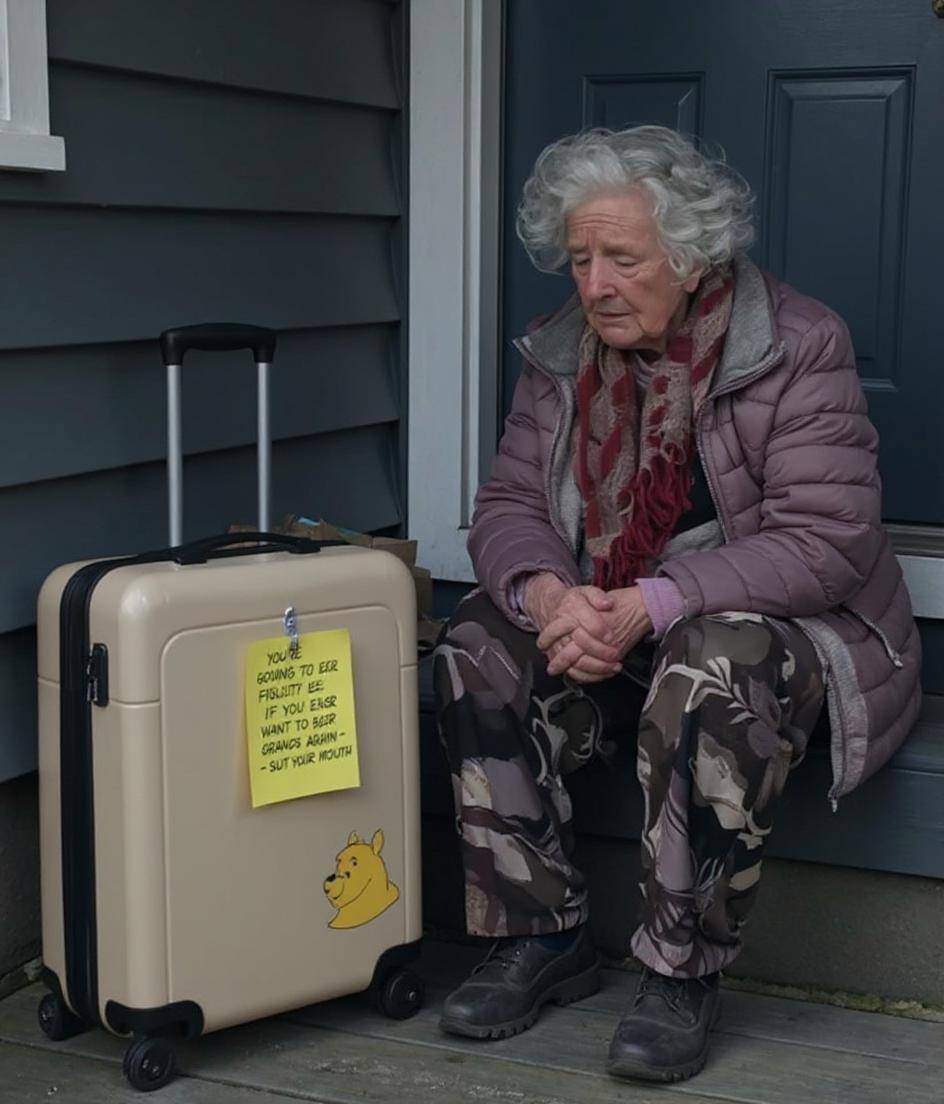At seventy, I left work with a cake in hand, eager to spend time with my family. But when I arrived home, my luggage sat on the porch, and the front door was locked. Something was deeply wrong.
I had worked at the clinic for thirty-eight years. Faces changed, managers came and went, the clinic even rebranded a few times. But I stayed. Not because I couldn’t leave—if I didn’t show up, who else would?
At home, my family lived with me: my son Elton, his wife Selene, and my grandchildren, Milo and Ivy. I never made my presence a burden. “As long as I live, no one in this family will pay rent,” I often said, covering most costs myself: food, electricity, insurance.
Selene didn’t work, claiming the children kept her busy, even though I watched them for four or five hours daily. She seemed constantly focused on updating her shoe collection, her closet resembling a department store. I only bought things on sale, quietly adding small amounts to a shared card to keep peace.
Elton was gentle and kind, like his late father. Whenever I mentioned Selene’s spending while Milo’s shoes were falling apart, he would sigh, “Please, Mother… let’s not go there.”
My grandchildren adored me. At night, Ivy would slip into my bed. Milo, the little one, whispered grand promises: “When I’m big, I’ll get you a palace. You’ll be the queen.”
When it was time to retire at seventy, I requested one extra day to bid farewell to my patients. My colleagues celebrated with a “Retired, not finished” mug, cupcakes, and balloons. I laughed with them, but inside, I felt uneasy—quiet, unneeded, ineffective.
After work, I bought Milo’s favorite strawberry cream cake, envisioning a family evening together. But when I arrived, the sun casting its evening glow, the door was locked. My key wouldn’t turn. On the porch, two suitcases—mine—lined up like I was being sent away.
A yellow sticky note read:
“I’m grateful for all you’ve done. Step back and relax. I’ve paid for a year in a senior home. The envelope has taxi money. For Elton, this was YOUR CHOICE. Follow MY PLAN to see the children. —Selene”
The cake was smeared, my heart frozen. Selene had forced me out.
I sat for a long while, then remembered my friend Maris across the street—if anyone could handle Selene’s mess, it was her. In 1986, when my old car broke down, we met, and she’d been my closest friend ever since.
I crossed to Maris’s home, cake in hand. She opened the door with curlers in her hair, her robe slipping, cat in arms. “I expected you at some luxury senior home. What’s going on?”
I explained Selene’s note and her plan. Maris poured tea, listened, and sighed. “You didn’t even keep your name on the house?”
I hadn’t. Maris explained how Selene’s manipulations now left me vulnerable. “Tonight, you won’t sleep on a porch. You stay here,” she said, steadying me.
Together, we devised a careful plan. From Maris’s window, we could watch my house. We saw Selene’s routines, confirming her schemes. Using Maris’s tech and a camera gift Milo had given me, we recorded Selene’s actions.
Friday evening, as Elton returned home, we revealed Selene’s deception. On a large screen, she appeared in the kitchen with Nolan, her voice loud and breathy. Elton froze, speechless. Seconds later, Selene came outside, realizing her exposure.
I handed Elton the note Selene had left on my luggage. He read it, hands shaking, jaw tight. “Come inside. Gather your things. Now.” He obeyed silently, the truth clear, no shouting needed.
I sat beside him. “I’m sorry this happened.”
“It’s okay, Ma. I knew something was off. But you endured it.”
Even at my age, I stayed composed. Maris winked. “Tonight, the grandchildren stay with us. I’ll make a pie.”
I stretched and looked at my home, calm. I was retiring, yes—but my story was far from finished.
